Introduction
- India provides an opportunity for opening an e-commerce portal – “Student Beans”.
- “Student Beans” is a Web-portal which is to provide students with discount offers.
- The current presentation analyzes opportunities and threats for opening “Student Beans” in India.
- Such tools as PESTLE analysis (Wheelen, Hunger, Hoffman, & Bamford, 2015) and Porter’s Five Forces analysis (Hill & Jones, 2010, p. 43) are utilized.
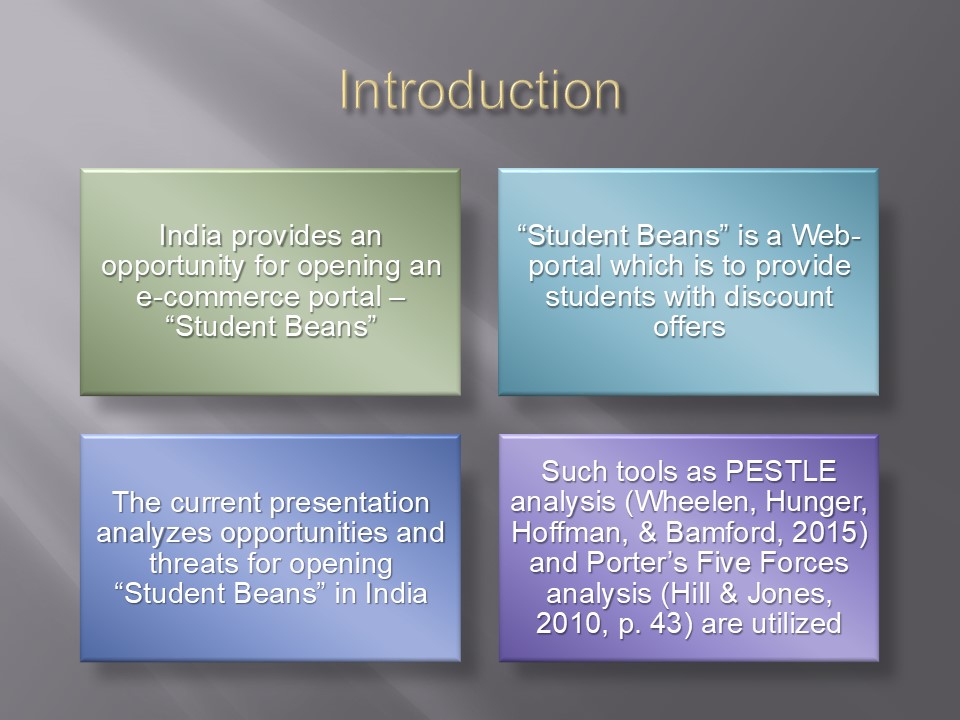
Why “Student Beans”? Why India?
- 50% population – below 25 years of age; mean age is expected to be 29 by the year 2020.
- Numerous colleges and universities, 50 million students. This is the third largest sector in the world.
- There are very few discount offers for students, and these are limited.
- No online discount offers, poorly developed e-commerce.
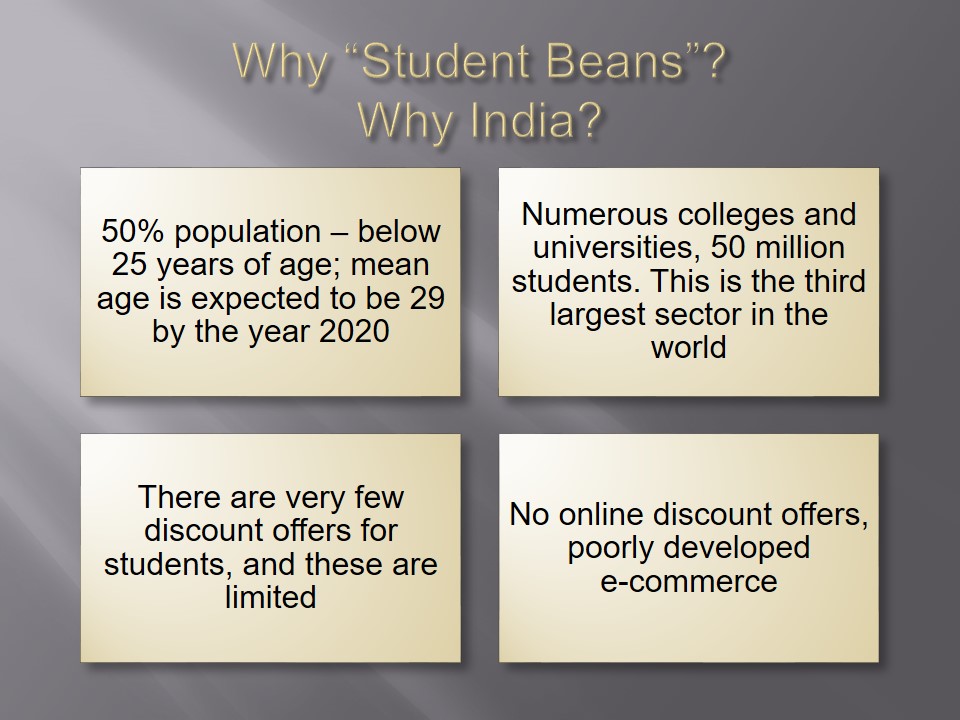
PESTLE analysis
- Political:
- India is the largest (in terms of population) democratic country in the world (BBC News, 2016). The governmental policy has been aimed at globalization and economic growth, which is an opportunity for opening business. However, ongoing international conflicts (CIA, 2017) pose a threat.
- Economic:
- The Indian economy is growing rapidly when compared to other countries, but a large proportion of population is poor. The prognosis for future growth is moderately positive (CIA, 2017), which may present an opportunity.
- Social:
- There are high rates of poverty in India (CIA, 2017), which is a possible threat for “Student Beans.” However, the extensive growth of the population and the large proportion of youth present an opportunity.
- Technological:
- Only 26% of the population had access to the Internet in 2015 (CIA, 2017), which is a threat. However, students are often likely to have access to the Web.
- Legal:
- Business laws are mostly favorable, and are less strict than in several other countries. They are consistent across India, which is an opportunity. E-commerce is regulated by the Information Technology Act (“Business Laws,” n.d.).
- Environmental:
- The natural environment is in poor condition, and degrading further; natural resources are overstrained; there are water issues (CIA, 2017). However, this may present an opportunity to help students find resources which are lacking in their area.
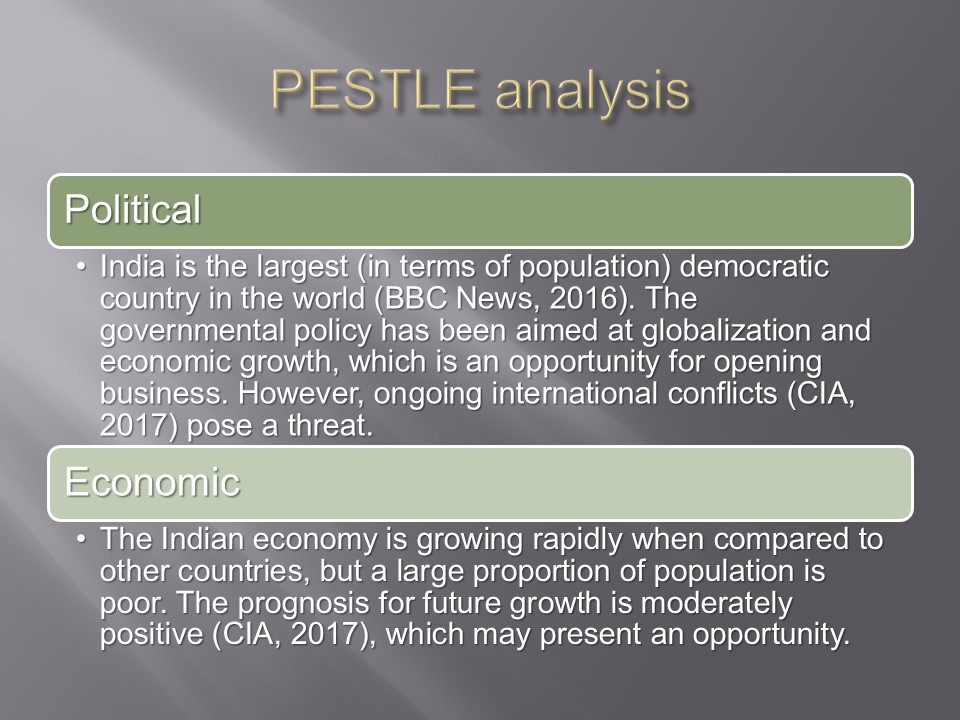
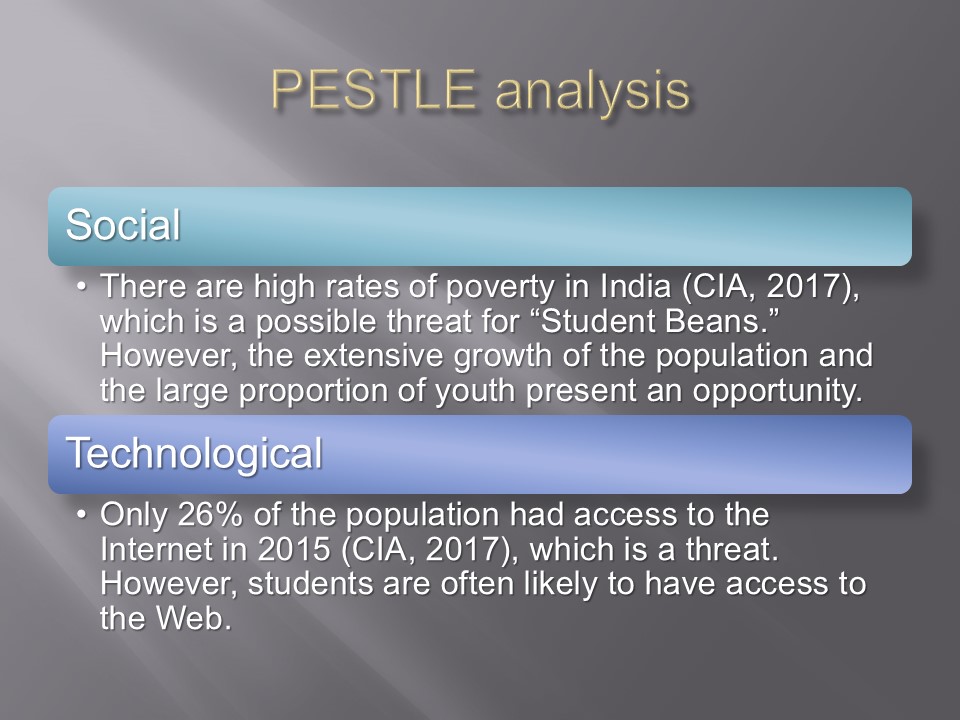
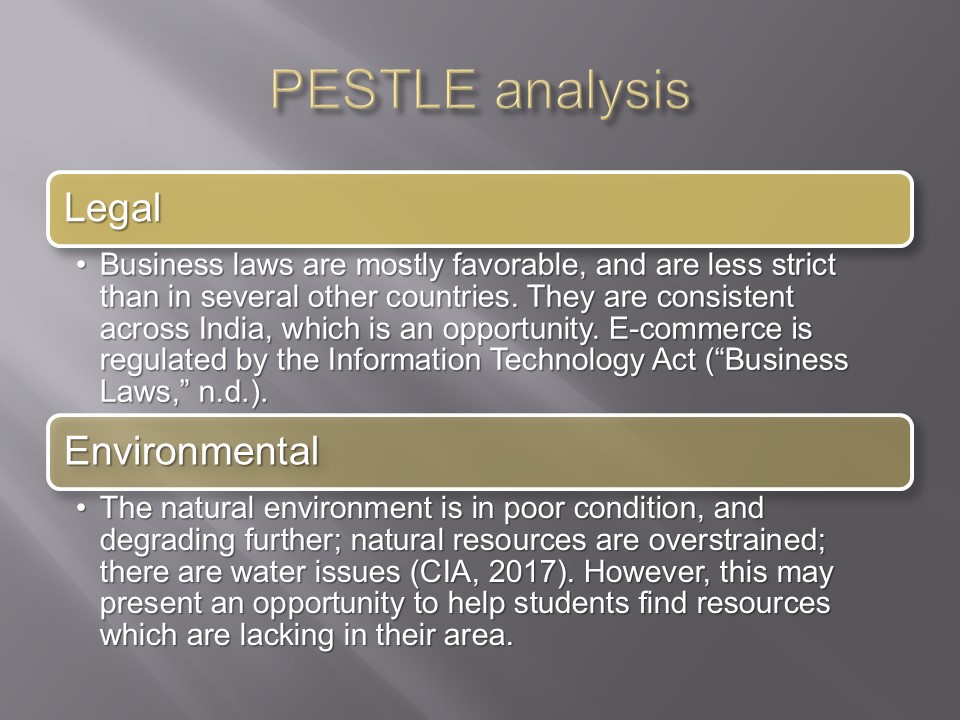
Porter’s Five Forces
- Threat of new entry:
- New entries can be easy for this type of business, and pose a threat, especially if access to the Internet grows.
- Threat of substitute services:
- Low. There are no specific Web-portals offering discounts for the target population (students), and they are likely to use “Student Beans” if seeking discounts. This provides an opportunity.
- Rivalry among existing firms:
- Low. Currently, e-commerce is not well-developed. In addition, there are no firms targeting students and providing discounts for that population. This provides an opportunity.
- Bargaining power of consumers:
- Consumers will probably have low bargaining power. Not many (if any) similar services are available, so customers are unlikely to demand better service, etc. In addition, the large size of the target population increases the power of “Student Beans,” which is an opportunity.
- Bargaining power of suppliers:
- Due to the deficit of supply, it might be possible for suppliers to have greater power. However, providing service in large cities (Delhi, Chandigarh, Mumbai, Pune) might allow for greater number of possible suppliers, thus reducing their bargaining power.
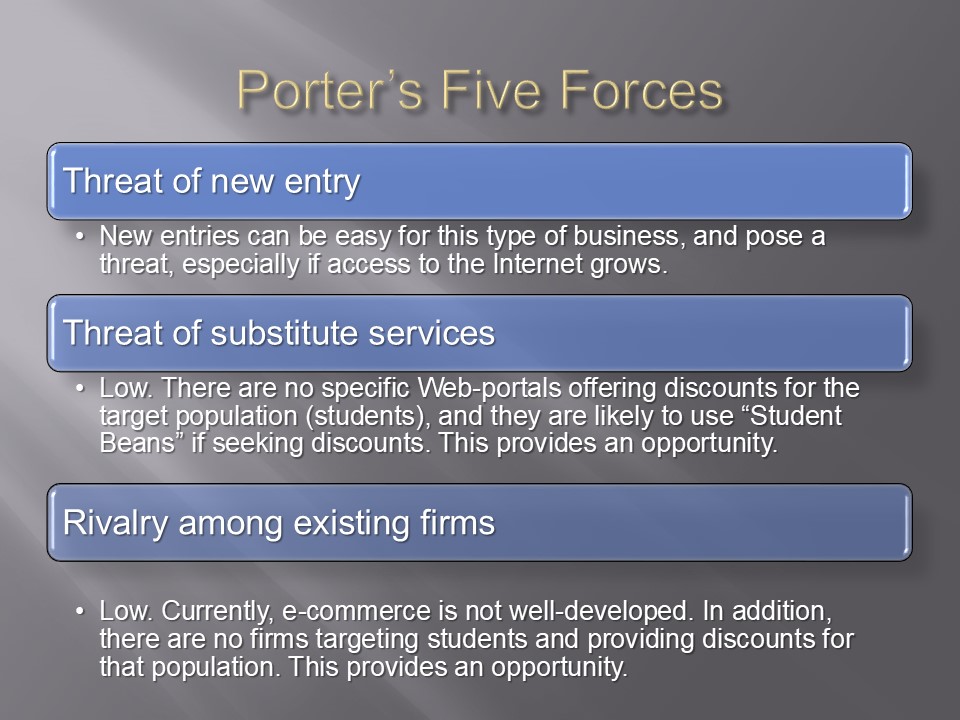
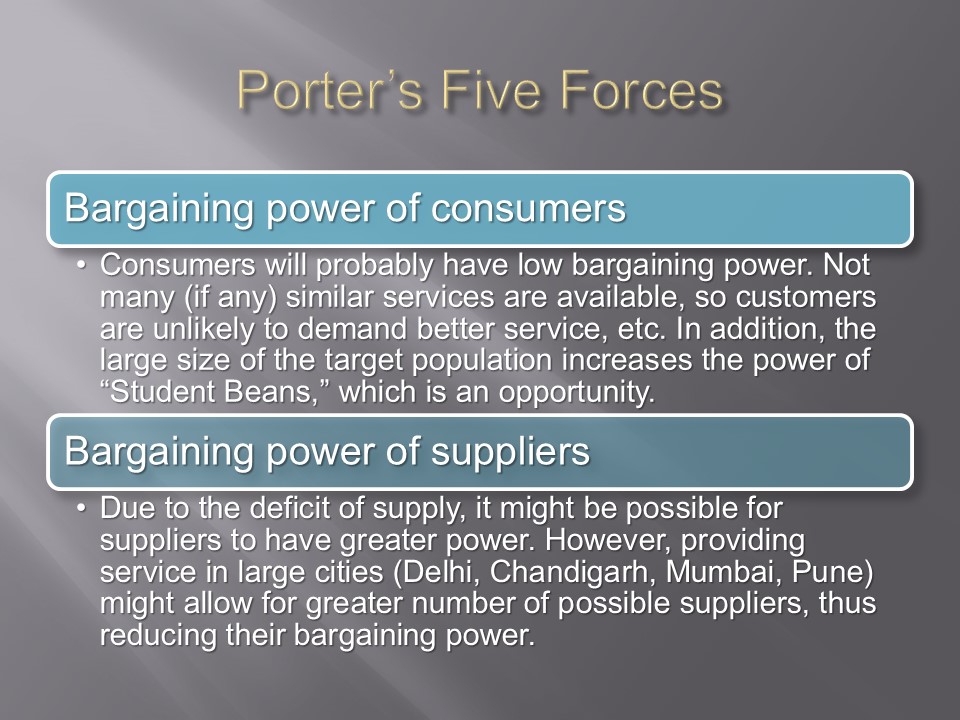
Conclusion
- Analysis of opportunities and threats for opening “Student Beans” in India has been performed using such tools as PESTLE and Porter’s Five Forces analysis.
- There are several threats for opening “Student Beans” in India, but many more opportunities.
- On the whole, the business of “Student Beans” in India appears to have a considerable potential.
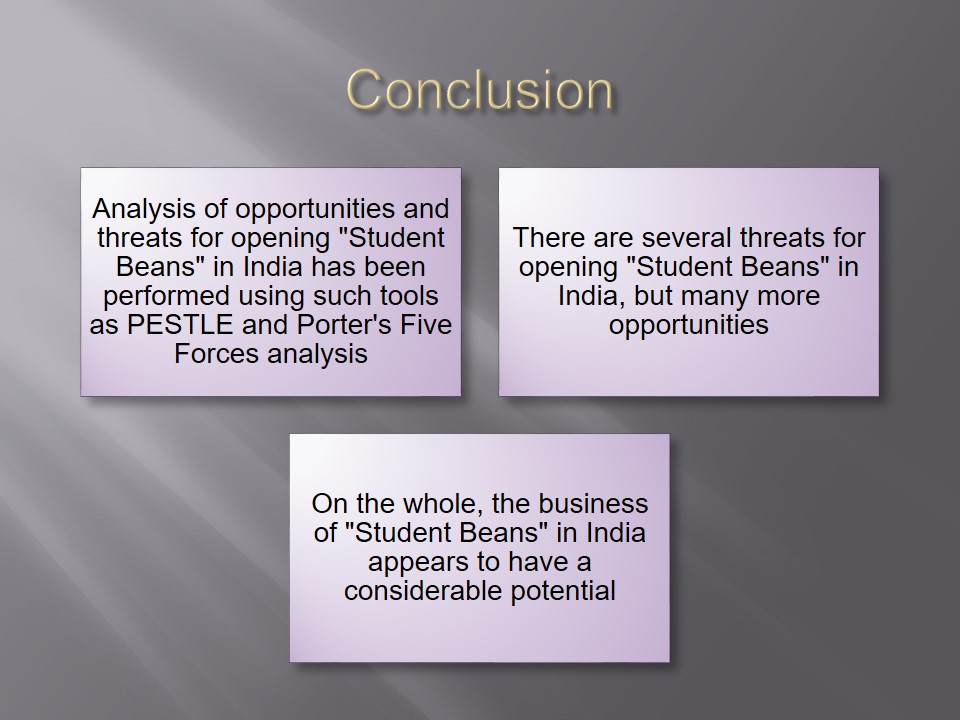
References
BBC News. (2016). India country profile. Web.
Business laws & regulations in India. (n.d.). Web.
CIA. (2017). The world factbook: India. Web.
Hill, C., & Jones, G. (2010). Strategic management theory: An integrated approach (9th ed.). Mason, OH: South-Western Cengage Learning.
Wheelen, T. L., Hunger, D., Hoffman, A. N., & Bamford, C. E. (2015). Strategic management and business policy: Globalization, innovation, and sustainability: Global edition (14th ed.). Harlow, UK: Pearson Education Limited.